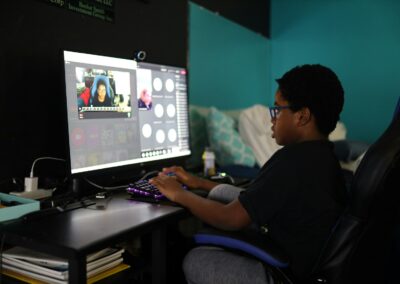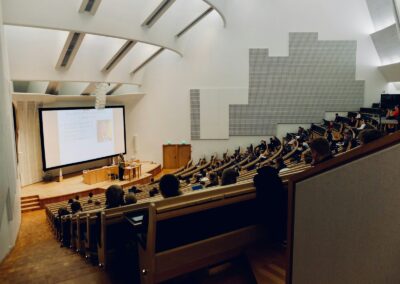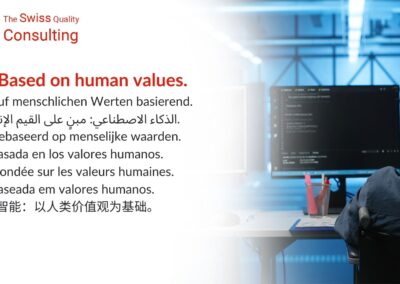Best Practices for Virtual Classroom Implementations: Advancements in UAE and Saudi Arabia
Leveraging Technology for Effective Virtual Classrooms
Best practices for virtual classroom implementations are crucial for ensuring that educational institutions can effectively leverage technology to enhance learning experiences. Successful schools and universities have developed strategies that can serve as a model for others looking to implement or improve their virtual classrooms. In the UAE and Saudi Arabia, where technological innovation and education are top priorities, these best practices can significantly enhance the quality of education.
One of the key best practices is the integration of advanced technologies such as artificial intelligence (AI) and blockchain. AI can be used to personalize learning experiences by analyzing student performance data and providing tailored feedback. This helps to address individual learning needs and improve outcomes. Blockchain, on the other hand, ensures the security and integrity of academic records, making it easier to track and verify student achievements.
Another important practice is the use of interactive and immersive technologies like virtual reality (VR) and augmented reality (AR). These technologies can make complex subjects more accessible by providing hands-on, interactive experiences that enhance understanding. For example, VR can take students on virtual field trips to explore historical sites or scientific phenomena, while AR can overlay digital information onto the physical world, making abstract concepts more concrete. By incorporating these technologies, educational institutions in Dubai and Riyadh can create engaging and effective virtual learning environments.
Ensuring Student Engagement and Participation
Student engagement and participation are critical factors in the success of virtual classrooms. Successful schools and universities have implemented various strategies to keep students engaged and actively participating in their online courses. One effective approach is the use of collaborative tools and platforms that facilitate communication and teamwork among students.
For instance, incorporating discussion forums, group projects, and peer review activities can foster a sense of community and collaboration. These activities encourage students to interact with one another, share ideas, and learn from different perspectives. In the UAE and Saudi Arabia, where collaboration and innovation are highly valued, these strategies can help students develop critical thinking and problem-solving skills.
Another best practice is providing regular and meaningful feedback. Timely feedback helps students understand their progress and identify areas for improvement. It also shows that instructors are invested in their success, which can motivate students to stay engaged and committed to their studies. Using AI-driven analytics, educators can provide personalized feedback that addresses the specific needs of each student, further enhancing the learning experience.
Furthermore, offering a variety of learning materials and resources can cater to different learning styles and preferences. Multimedia content such as videos, podcasts, and interactive simulations can make learning more dynamic and engaging. By diversifying the types of content available, educators can ensure that all students have the opportunity to engage with the material in a way that suits them best.
Implementing Robust Support Systems
Implementing robust support systems is essential for the success of virtual classroom implementations. Successful schools and universities have established comprehensive support structures to assist both students and educators in navigating the challenges of online learning. This includes technical support, academic advising, and mental health resources.
Technical support is crucial for addressing any issues that may arise with the virtual classroom platforms and tools. Providing round-the-clock technical assistance ensures that students and educators can resolve problems quickly and continue their learning without significant disruptions. In regions like Dubai and Riyadh, where technological infrastructure is advanced, maintaining high standards of technical support can further enhance the virtual learning experience.
Academic advising and tutoring services can help students stay on track with their studies and achieve their academic goals. Personalized academic support ensures that students receive the guidance they need to succeed in their courses. Additionally, offering mental health resources and counseling services can address the emotional and psychological challenges that students may face in a virtual learning environment. By providing comprehensive support, educational institutions can create a more holistic and supportive learning environment.
Leadership and Management Skills in Virtual Classroom Implementation
Effective leadership and management skills are critical for the successful implementation of virtual classrooms. Business executives and mid-level managers in the UAE and Saudi Arabia need to be knowledgeable about the latest technological advancements and possess the skills to drive digital transformation within their organizations. This involves understanding the technical aspects of virtual classrooms and fostering a culture of innovation and agility.
Leadership in this context means being able to navigate the complexities of integrating virtual classroom technologies into existing educational systems and processes. Managers must be adept at project management, coordinating cross-functional teams, and managing resources effectively to implement these technologies successfully. This includes setting clear objectives, monitoring progress, and ensuring that the solutions deliver the intended benefits.
In Dubai and Riyadh, where the pursuit of technological innovation is a national priority, the ability to implement virtual classroom technologies effectively can provide a significant competitive advantage. By embracing these technologies, organizations can enhance their educational offerings, improve student outcomes, and drive business success. Strong leadership and management skills are crucial for navigating this transformation and achieving sustainable growth.
Project Management in Virtual Classroom Deployment
Effective project management is essential for the successful deployment of virtual classrooms. Given the complexity and scale of these projects, a structured and methodical approach is required. This involves detailed planning, risk assessment, and stakeholder management to ensure that the project stays on track and meets its objectives.
In the context of the UAE and Saudi Arabia, where large-scale educational initiatives are common, project management skills are particularly valuable. Managers need to balance short-term deliverables with long-term strategic goals, ensuring that each phase of the project contributes to the overall vision. This requires a deep understanding of both the technical and educational aspects of virtual classroom technologies.
Furthermore, project management in the virtual classroom space often involves navigating regulatory landscapes and ensuring compliance with local and international standards. This adds an additional layer of complexity, requiring managers to stay updated on the latest regulatory developments and adapt their strategies accordingly. By doing so, they can ensure that their virtual classroom initiatives are not only innovative but also compliant and sustainable.
Conclusion: The Future of Education with Virtual Classrooms
The adoption of virtual classrooms for teaching complex scientific concepts is set to revolutionize education, particularly in the UAE and Saudi Arabia. By leveraging the principles of AI and modern technology, these platforms offer a secure and efficient way to enhance the learning experience for students. For business leaders and managers, embracing virtual classrooms presents an opportunity to enhance educational outcomes, improve operational efficiency, and achieve business success.
As the field of education continues to evolve, the role of virtual classrooms will become increasingly important. By staying at the forefront of technological advancements and fostering a culture of innovation, organizations in Dubai, Riyadh, and beyond can position themselves for sustained growth and success in the digital age.
—
#VirtualClassrooms, #BestPractices, #AI, #UAE, #SaudiArabia, #Riyadh, #Dubai, #ModernTechnology, #BusinessSuccess, #LeadershipSkills, #ManagementSkills, #ProjectManagement























